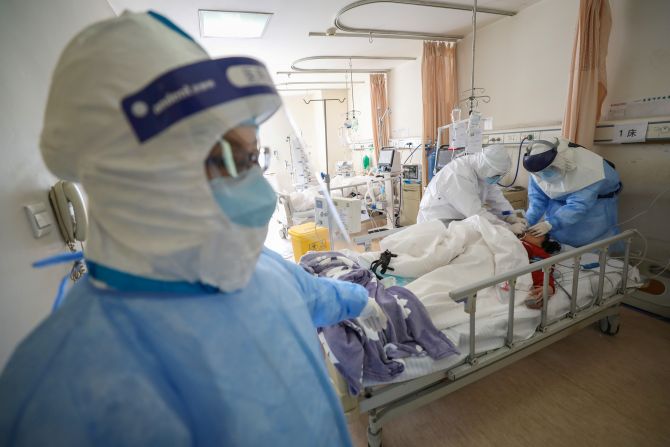China to build more bio labs amid row over Wuhan lab
April 16, 2021 21:55

China has operationalised its new biosecurity law to fortify the legal cover for the establishment and safe operation of more bio labs in the country amidst questions whether the COVID-19 originated from such a laboratory in Wuhan.
The novel coronavirus emerged at China's central Wuhan city in December 2019 and became a pandemic, upending life across the globe.
Under the new Biosecurity Law, China will continue to build and approve more labs specialising in advanced pathogenic microbiology with a scrupulous and scientific manner, the country's Deputy Minister of Science and Technology Xiang Libin said.
China will carry out major scientific research to enhance its biosecurity science and technological capacity against future infectious diseases, state-run Global Times quoted Xiang as saying.
The ministry has examined and approved the construction of three biosafety level-4 labs, or P4 labs, and 88 biosafety level-3 labs, or P3 labs, in China, he said.
A biosafety level (BSL), or pathogen/protection level, is a set of biocontainment precautions required to isolate dangerous biological agents in an enclosed laboratory facility.
The levels of containment range from the lowest biosafety level 1 (BSL-1) to the highest at level 4 (BSL-4).
Bai Chunli, president of the Chinese Academy of Sciences, said in April last year that China had two P4 labs besides 81 P3 labs in operation or approved for construction.
In contrast, the US has 12 P4 and 1,500 P3 labs, the Global Times report said.
Bio labs acquired significance as the US has alleged that the COVID-19 may have emanated from the Wuhan Institute of Virology (WIV) which is a P-4 bio lab. China has strongly denied the charge.
A team of WHO experts, which probed the origin of the coronavirus, concluded last month that all hypotheses included the allegation that COVID-19 could have emanated from a bio lab "remained open".
World Health Organisation Director-General Dr Tedros Adhanom Ghebreyesus, while receiving the report of the international experts' team which visited Wuhan, said on March 30 that "as far as the WHO is concerned, all hypotheses remain on the table".





 © 2024 Rediff.com -
© 2024 Rediff.com -